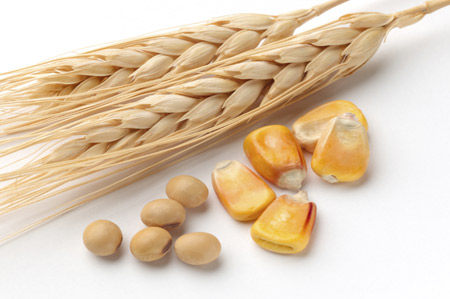 (AgProfessional) – Corn futures are slightly higher in early morning trade Wednesday. Rain delays in planting have intensified in Argentina and now it’s expected to stay wet through Thursday. That’s been an important source of support for corn, limiting downside risk. But on the flip side, export demand has been disappointing and a recent report by Rabobank forecasts U.S. corn acreage in 2013 will be a record 97.6 million acres, up another 700,000 from this year, which was the highest since 1934. In early morning trade, March corn is up 2 3/4 at $7.54 3/4.
(AgProfessional) – Corn futures are slightly higher in early morning trade Wednesday. Rain delays in planting have intensified in Argentina and now it’s expected to stay wet through Thursday. That’s been an important source of support for corn, limiting downside risk. But on the flip side, export demand has been disappointing and a recent report by Rabobank forecasts U.S. corn acreage in 2013 will be a record 97.6 million acres, up another 700,000 from this year, which was the highest since 1934. In early morning trade, March corn is up 2 3/4 at $7.54 3/4.
Soybean futures are a little stronger in early morning trade Wednesday. Prices remain volatile with different points of view on production prospects in South America tugging back and forth at the market. There were two new private forecasts out for Brazil Tuesday, one at 80.0 mmt, which was down from the previous forecast, and the other at 81.4 mmt, which was up. More rain is needed across RGDS and Parana in Brazil, but there are some showers in the forecast. The bigger concern is Argentina, where rain delays in planting are worsening. In early morning trade, March beans are up 9 1/2 at $14.05.
Wheat futures are just a little stronger in early Wednesday trade, but that was also the case early on both Monday and Tuesday and both days the market ended up lower. The chronic wet weather has most definitely hurt the Argentine crop. It’s only one third harvested; significant acreage was reportedly lost altogether due to flooding, and now disease and head sprouting in unharvested wheat is a growing problem. This supports continued confidence that lagging U.S. export sales are going to pick up in time to sustain USDA’s current export forecast. In early morning trade, CBOT March is up 2 3/4 at $8.59 1/4; KCBT March is up 4 1/2 at $9.07 and MGE March is up 1 1/4 at $9.30 1/2.
Both fed cattle and feeder cattle futures are mixed in early Wednesday morning trade. Contracts through June are slightly higher, but from August on they are unchanged to lower. Last week’s lower cash trade lingers as a negative factor for prices. Packers are reportedly utilizing a lot of contract cattle and anticipating significant deliveries on current short positions in December as the month approaches expiration. Further, traders are concerned that beef demand could remain weak until retailers begin buying post Christmas needs later this month. In early morning trade, February cattle are up 12 1/2 cents at $130.27 1/2; April up 12 1/2 at $134.75, but August futures on out slightly lower.
Hog futures are soft in early Wednesday trade despite the further strength in cash hogs Tuesday. That’s at least partly because futures remain at a strong premium to cash, though the gap is closing. Deferred contracts are under pressure from ideas the big premiums they hold over nearby contracts may be overdone if producers have tempered production cutbacks evident in the last Hogs& Pigs Report. In early morning trade, December hogs are 12 1/2 lower at $84.32 1/2; May futures down 90 at $97.60 and June down 20 at $99.85.
Cotton futures are mixed in early trade Wednesday, with some contracts recovering slightly from Tuesday’s sharp losses and other contracts losing a bit more ground. Failure to show any progress on avoiding the “fiscal cliff” has become a particularly negative factor for cotton futures. Traders know that should every American family see a big jump in tax withholding come January 1, new apparel is at the top of the list of discretionary spending families can cut back on. In early Wednesday trade, March cotton is up 14 points at 73.05, but new crop October cotton is down 20 points at 76.47.




